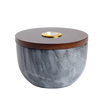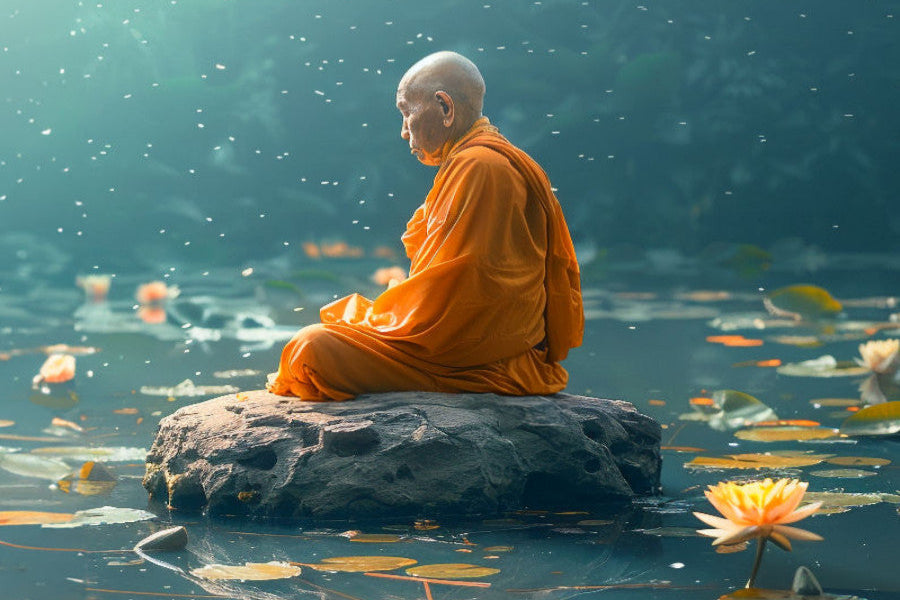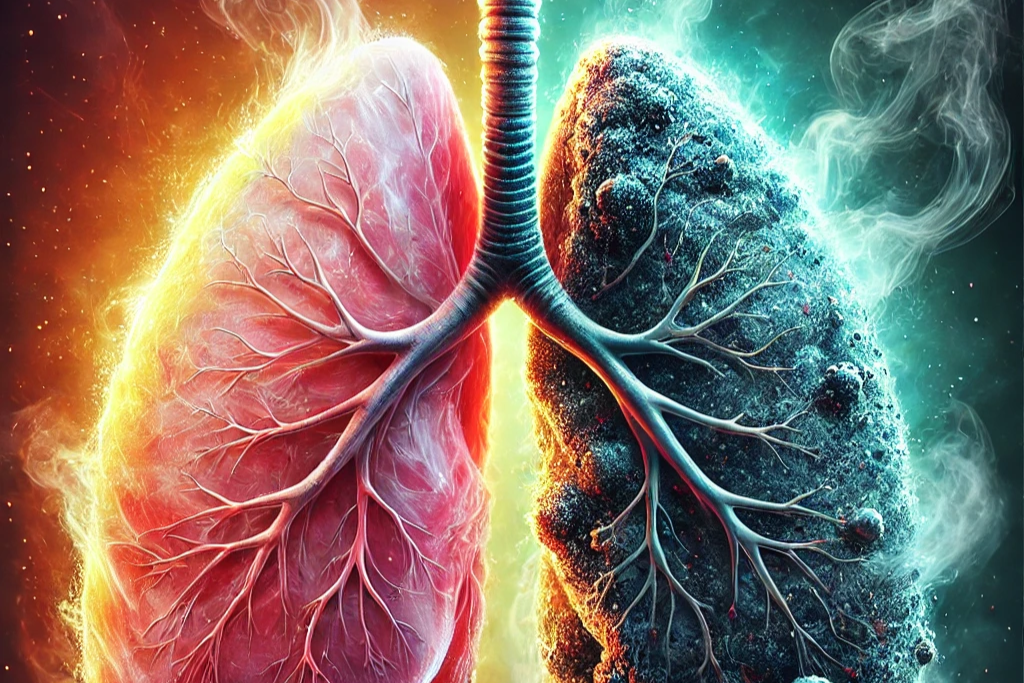Table of Contents
- Introduction
- 1. The Physiology of Breath
- 2. Breath and the Nervous System
- 3. Breath in Spiritual Traditions
- 4. Conscious Breathing: Techniques and Practices
- 5. Why We Forget to Breathe (and How to Return)
- 6. The Power of the Inhale: A Philosophy of Presence
- 7. Breathing with Intention: INHALE Tools and Rituals
- Conclusion
- About the Author
The Art of Breathing: Science, Spirituality, and the Power of the Inhale
Breathing is the first thing we do when we enter this world — and the last when we leave. Yet in between, we so often forget to notice it. In the rush of modern life, our breath becomes shallow, automatic, and unconscious — a background rhythm we rarely honor or understand.
But breath is not just a biological reflex. It is a gateway to the present moment. A tool for healing. A spiritual thread that connects body, mind, and soul. To breathe consciously is to return to ourselves — and to reclaim the power that’s always been within us.
This guide explores the breath from every angle: the science of respiration, its effect on the nervous system, its sacred role in human traditions, and how tools like the Vapman Click or Lotus Kit can become part of your daily breath ritual — not just for herbs, but for inner stillness.
1. The Physiology of Breath
Every breath we take delivers life — but how? On a physical level, breathing is the mechanism by which oxygen enters the body and carbon dioxide is released. It’s governed by the respiratory system: lungs, diaphragm, nasal passages, and a complex network of nerves and blood vessels.
When we inhale, the diaphragm contracts downward, expanding the lungs and drawing air in through the nose or mouth. Oxygen diffuses through tiny sacs in the lungs called alveoli and enters the bloodstream. At the same time, carbon dioxide — a waste product of metabolism — is expelled on the exhale.
This process happens 20,000 times per day, and it’s automatic — but not fixed. What makes breathing unique among bodily systems is that it’s both involuntary and under conscious control. That means we can change it. And when we do, everything changes with it.
Shallow vs. Deep Breathing
Most of us breathe shallowly — quick inhales through the chest that activate the sympathetic nervous system and send signals of stress. Deep, diaphragmatic breathing, by contrast, calms the body, improves oxygenation, and enhances clarity.
According to the Journal of Clinical Psychology, even a few minutes of controlled deep breathing can lower blood pressure, reduce cortisol, and improve heart rate variability — key markers of health and stress resilience.
And yet, in the modern world, we rarely access this power. We forget to breathe deeply. We live in fight-or-flight. The solution? Start by remembering how to breathe again — consciously, rhythmically, and with intention.
2. Breath and the Nervous System
The breath is one of the few tools we have to directly influence our autonomic nervous system — the part of our body responsible for automatic functions like heart rate, digestion, and stress response. With every inhale and exhale, we send signals to the brain about whether we are safe or in danger.
Fast, shallow breaths activate the sympathetic nervous system — the “fight or flight” mode. This was vital in early human evolution, when responding to threats required speed and alertness. But in today’s world, this system is triggered by emails, deadlines, and overstimulation.
In contrast, slow, deep breathing activates the parasympathetic nervous system — our “rest and digest” mode. It helps us return to calm, rebuild, and restore. This isn’t just theory — it’s well-established in medical literature. One landmark review in Frontiers in Psychology shows that controlled breathing can improve emotional regulation, sleep quality, and mental clarity.
With each breath, we choose which system we inhabit. In this way, breathing becomes a form of empowerment — not just biology.
3. Breath in Spiritual Traditions
Across cultures and centuries, breath has been recognized as sacred. From the Sanskrit word prāṇa in yogic philosophy (meaning “life force”) to the Hebrew word ruach (spirit, breath, wind), breathing has always carried deeper meaning than mere airflow.
In Buddhism, the breath is a central anchor in Vipassana meditation — a way to return to the present moment. In Taoism, breathwork harmonizes internal energy (qi). And in Christian mysticism, breath is the sacred conduit between the physical and the divine.
Why this universal reverence? Because breath is a reminder: of presence, of awareness, of connection to something greater. As the Sufi mystic Hazrat Inayat Khan once wrote, “The breath is the bridge between body and soul.”
Even today, modern spiritual practices such as Holotropic Breathwork, Wim Hof Method, and Shamanic breathing draw on this ancient wisdom to unlock insight, healing, and transcendence — all through the inhale and exhale.
4. Conscious Breathing: Techniques and Practices
You don’t need a monastery or a silent retreat to practice conscious breathing. All it takes is attention and intention. Here are three accessible techniques to reconnect with your breath and body:
1. Box Breathing (used by Navy SEALs)
Inhale 4 sec → Hold 4 sec → Exhale 4 sec → Hold 4 sec
This technique improves focus and stress resilience. Try it for 2–3 minutes during moments of tension.
2. 4-7-8 Breath (calm the nervous system)
Inhale 4 sec → Hold 7 sec → Exhale 8 sec
Popularized by Dr. Andrew Weil, this breath resets the parasympathetic system and is great before sleep.
3. Coherent Breathing
Inhale 5 sec → Exhale 5 sec (no hold)
This maintains heart rate variability balance and can be used anytime. Great during walks or transitions.
The most powerful breath, however, is the one you remember. Conscious breathing doesn’t need to be dramatic — it just needs to be intentional. You can start right now. Close your eyes. Inhale slowly. Notice it. That’s presence.
5. Why We Forget to Breathe (and How to Return)
Despite being essential to life, breathing is often overlooked in modern society. We sit hunched over screens, talk rapidly, react constantly — and in doing so, restrict our natural breath. Many people breathe through the mouth, into the chest, with little awareness or depth.
This disconnection is not just physical — it’s symbolic. When we forget to breathe, we forget to feel. We cut off access to presence, intuition, and internal rhythm.
But here’s the good news: the breath is always available. It’s free, portable, and instantly responsive. Returning to the breath is the fastest way to return to the present moment. It anchors us in the now, where anxiety can’t live and peace can begin.
One simple practice: set a timer on your phone every 90 minutes labeled “Breathe.” When it chimes, stop everything. Take three slow breaths. That’s it. Inhale. Exhale. Repeat. Over time, this habit becomes a gateway back to yourself.
6. The Power of the Inhale: A Philosophy of Presence
At INHALE, we don’t see breathing as a side effect — we see it as the core of conscious living. Our brand name isn’t just a reference to vapor — it’s a commitment to awareness, simplicity, and nature.
Each time you inhale, you engage with the present. You connect body and mind. You pause the noise of the world and listen inward. That’s why our devices are flame-powered, analog, and rooted in ritual. They are tools designed not just for herb enjoyment, but for mindful breath.
The act of heating a copper pan, listening for the click, taking in the vapor — this becomes more than a method. It becomes a meditation. Our mission is to bring back this sense of intimacy, presence, and purity — through every inhale.
We believe that breathing with intention transforms experience. Whether you’re inhaling botanicals, fresh mountain air, or a moment of silence — the principle is the same. Slowness. Awareness. Connection.
7. Breathing with Intention: INHALE Tools and Rituals
If breath is the ritual, the vaporizer becomes the instrument. INHALE designs tools that honor this sacred relationship — by combining natural materials, mechanical purity, and aesthetic beauty.
Vapman Click
Crafted from carbonized cherry wood and equipped with a gold-plated copper bowl, the Vapman Click uses no batteries, no plastic, and no shortcuts. It heats in seconds with a simple torch and features a signature "click" system that guides you to the perfect temperature. Each inhale is flavorful, precise, and free from combustion.
Lotus Vaporizer
Elegant and serene, the Lotus offers convection-based heating through a beautifully carved wood and metal cap. Designed for mindful sessions, it produces pure, cool vapor and requires no electricity — just your flame and your presence. It’s like breathing through art.
These tools aren’t just for consuming herbs — they’re for reconnecting with your breath. With each draw, you inhale not just vapor, but awareness.
Conclusion
The breath is life — the most honest, immediate expression of our being. It connects the physical and the spiritual, the conscious and the unconscious. And yet, we so often forget it. In remembering to breathe, we remember who we are.
To inhale is to come home. It is to pause, feel, and ground ourselves in the now. Whether you’re practicing breathwork, walking in nature, or using a handcrafted vaporizer to enjoy botanicals — the breath is the common thread. It’s the portal to clarity, calm, and presence.
At INHALE, we are not just building devices. We are creating rituals. We believe that mindful tools can enhance mindful lives — and that analog beauty can slow us down in all the right ways.
So next time life feels fast, tense, or noisy, stop. Inhale. Just one deep breath. That’s where it begins.
→ Explore INHALE’s handcrafted vaporizers and elevate your inhale — scientifically, spiritually, and sensorially.
About the Author

Author: Michael Mussner, Founder of INHALE Vaporizers
Michael is a passionate vaporizer designer and entrepreneur from South Tyrol, driven by craftsmanship, sustainability, and the mindful use of natural herbs. With a background in product innovation and a love for analog technology, he founded INHALE to revive flame-powered vaporizers like the Vapman and Lotus. Every product he creates is deeply rooted in authenticity, simplicity, and a respect for nature.
Questions? Contact us here or email support@nowinhale.com.


















Leave a comment
All comments are moderated before being published.
This site is protected by hCaptcha and the hCaptcha Privacy Policy and Terms of Service apply.